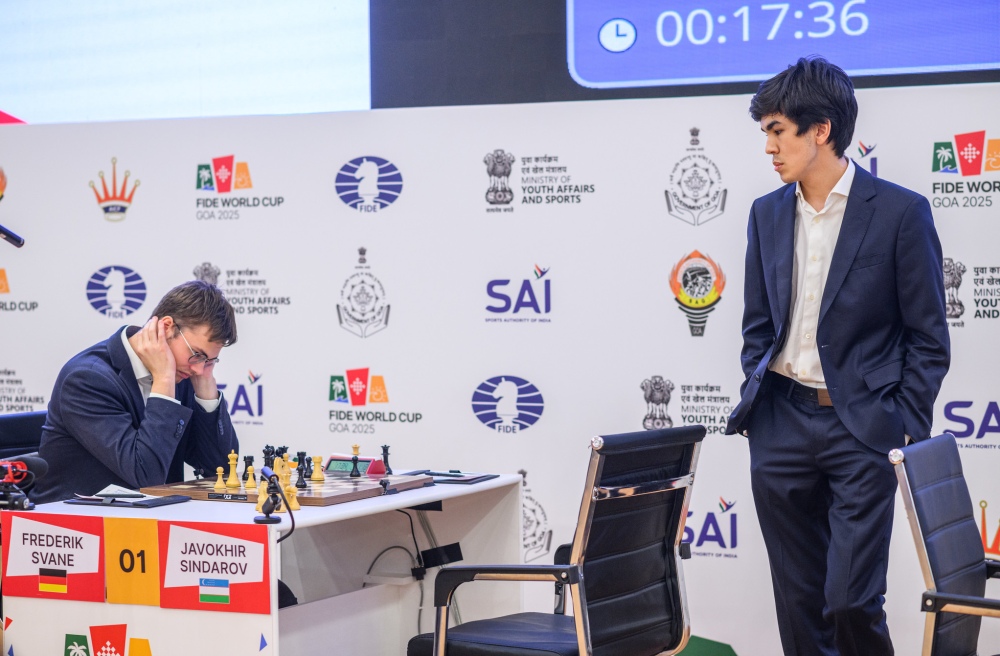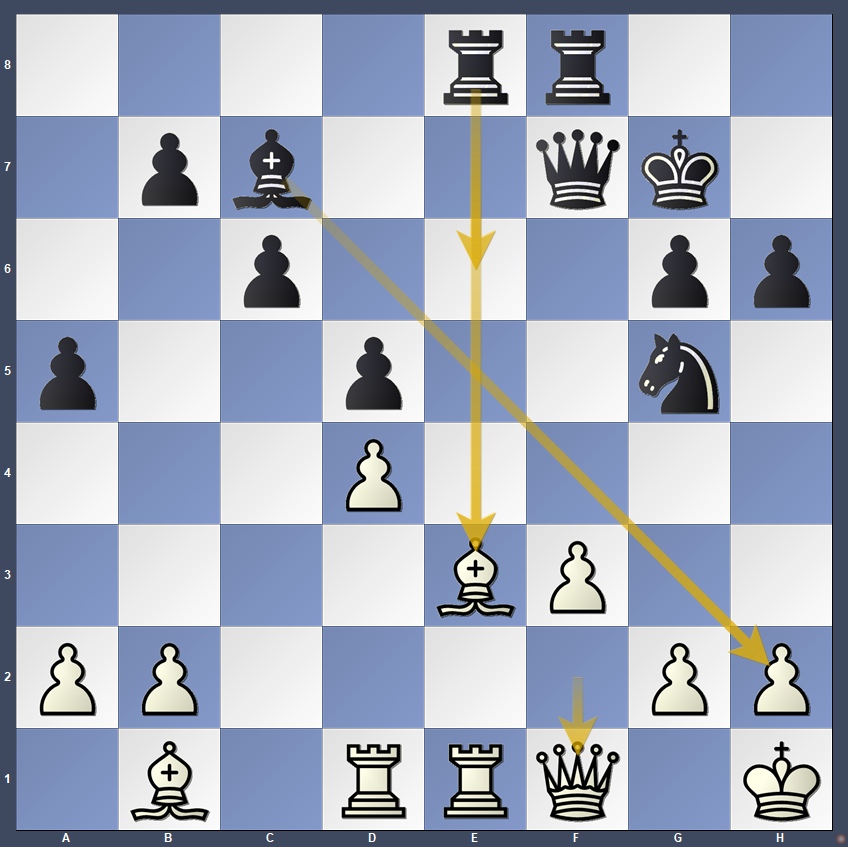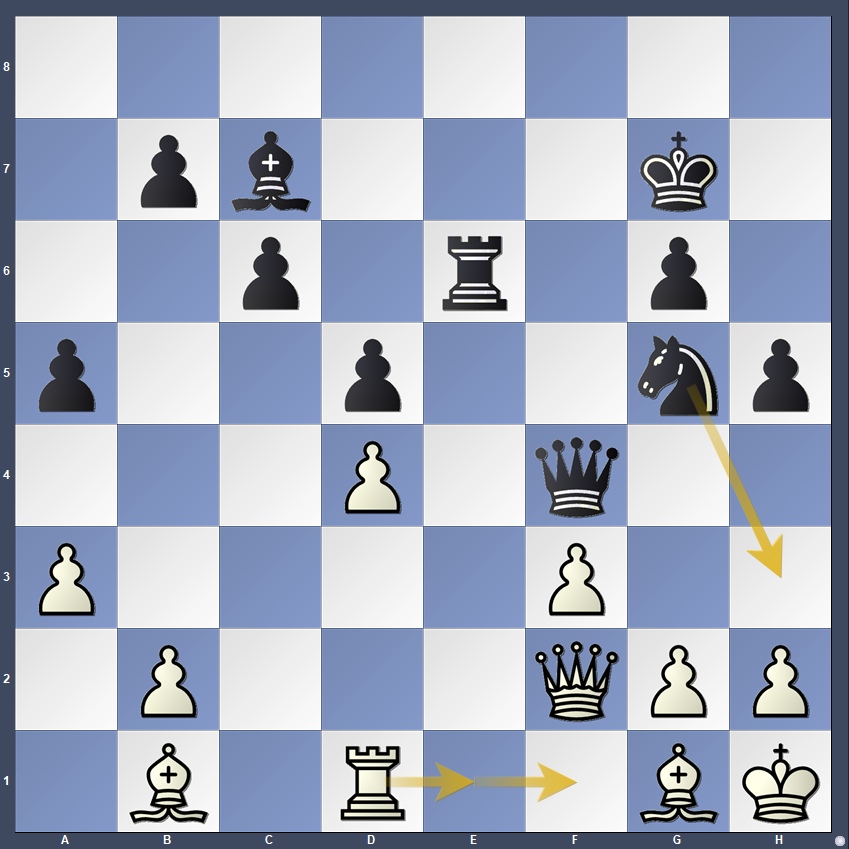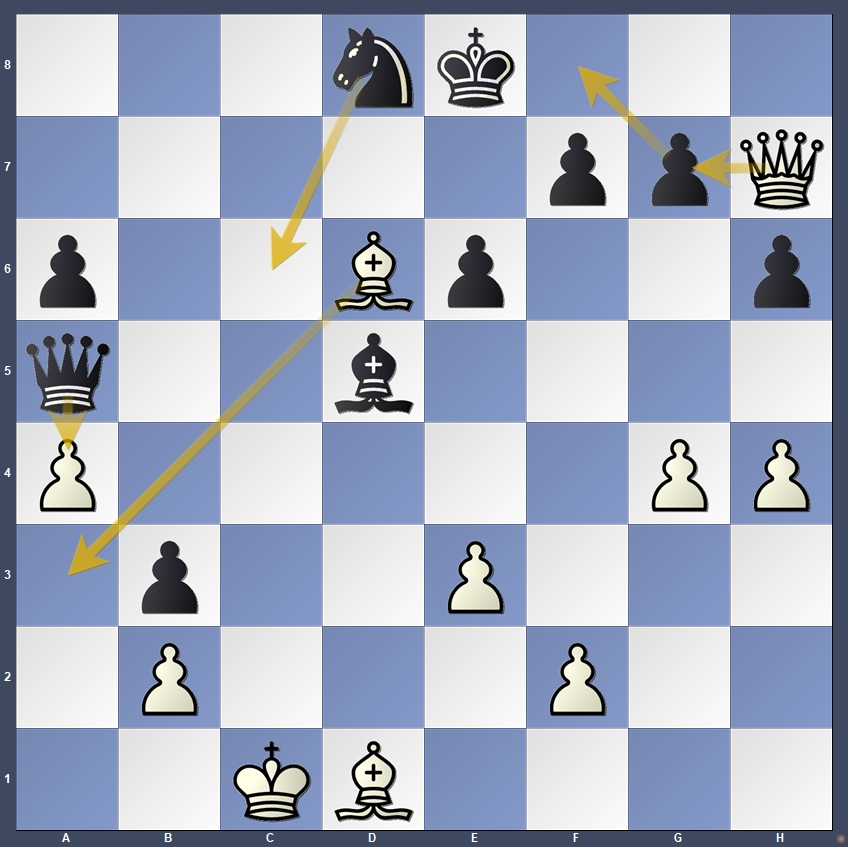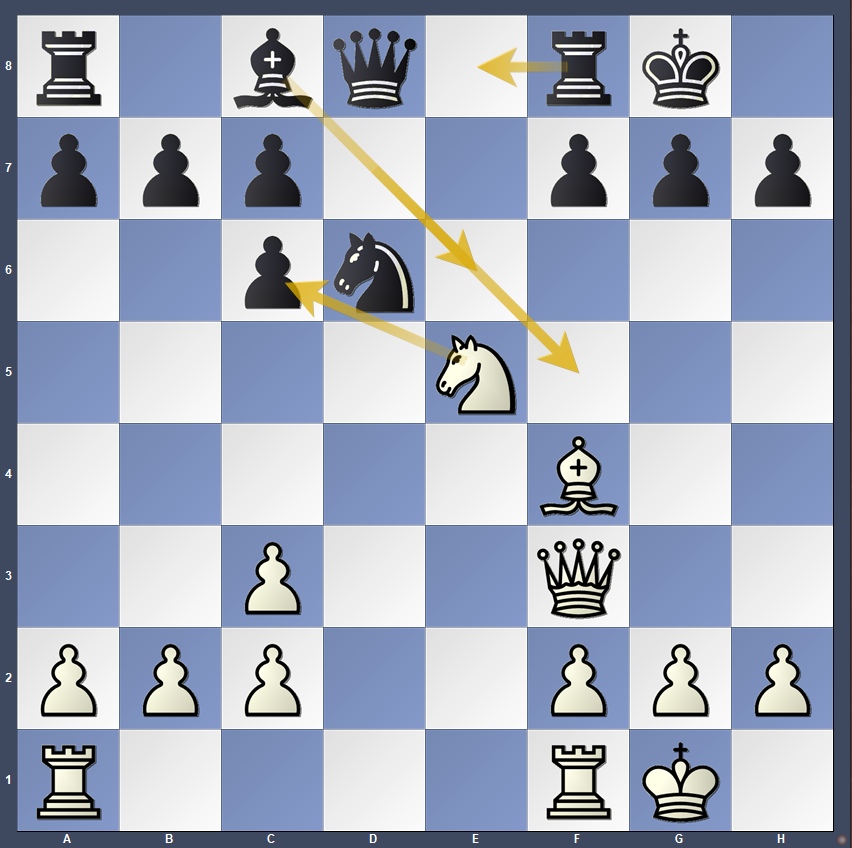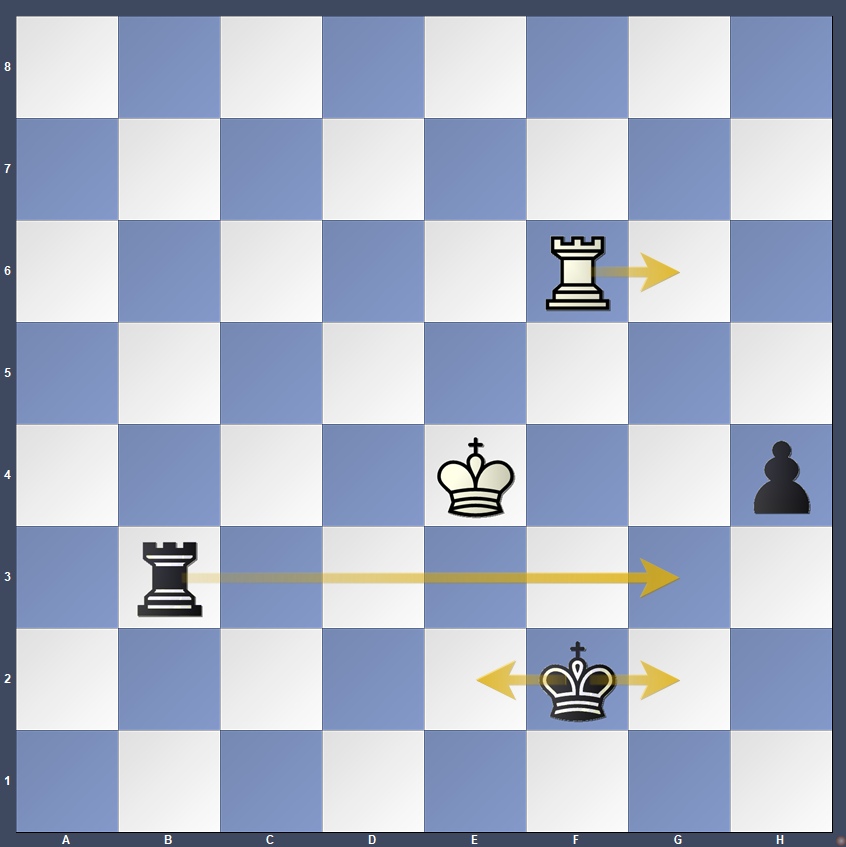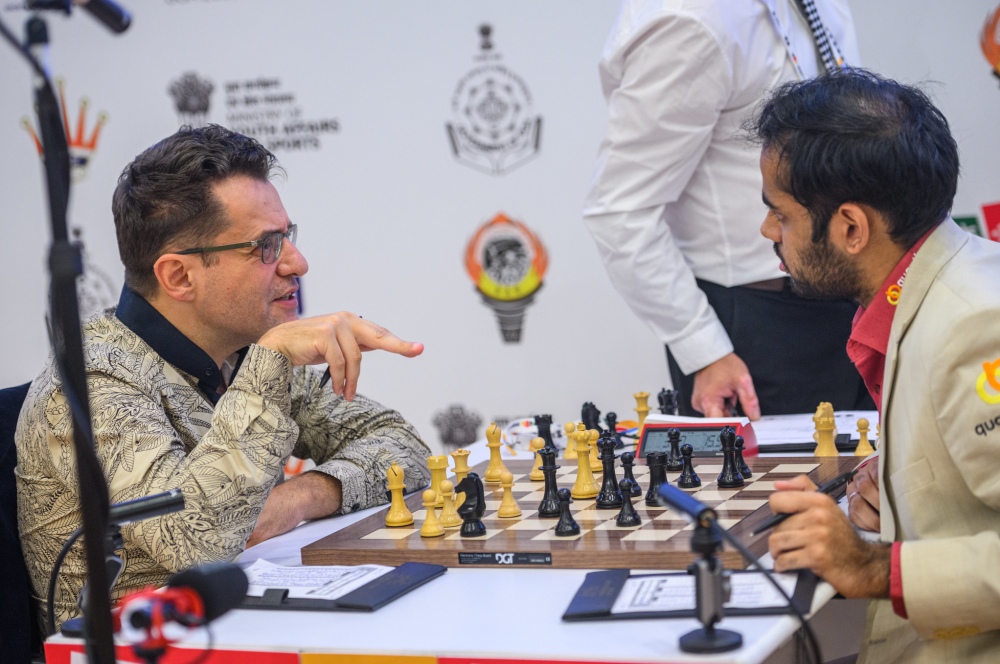
Round after round, the FIDE World Cup in Goa continues to deliver high-level chess and gripping storylines. Today’s classical games brought a mixture of precise technique, strategic battles, and edge-of-the-seat tension, with several matches heading toward the inevitable tiebreaks.
From commanding wins to miraculous escapes, the field once again showcased the depth and fighting spirit of the world’s elite players.
It was a difficult day for Armenian chess, marked by the sudden and emotionally heavy exit of two of its most iconic figures. Levon Aronian, once the heartbeat of Armenian teams and now a pillar of American chess, fell after a tense, error-studded battle.
Minutes later, Gabriel Sargissian, long admired for his team heroics and impeccable opening preparation, also bowed out after a single, costly misstep. Their simultaneous elimination closed a chapter of resilience and brilliance that has defined Armenian chess for two decades.

But if anyone needed a reminder of the steely resolve that made Uzbekistan Olympiad champions, today’s games provided it. Under pressure, under fire, or under the clock, the Uzbek players simply refused to break.
Javokhir Sindarov coolly neutralized every attempt to unbalance him, while Nodirbek Yakubboev struck with cold precision to secure his spot in the next stage. Their collective discipline and composure have become one of the defining narratives of the event: unyielding, confident, and remarkably mature for such a young squad.
Let’s take a closer look at this afternoon’s action in the Goa Resort Rio.
With so much at stake, it was clear from the outset that several matches were destined for the tiebreaks. And indeed, the first two games to finish — just shy of the two-hour mark — were precisely the two I had predicted before the round began.
The round was officially opened by GM Humpy Koneru, runner-up of the Women’s World Championship and reigning two-time Women’s World Rapid Champion, who performed the first ceremonial move on Board 3 for former World Rapid Champion GM Daniil Dubov.
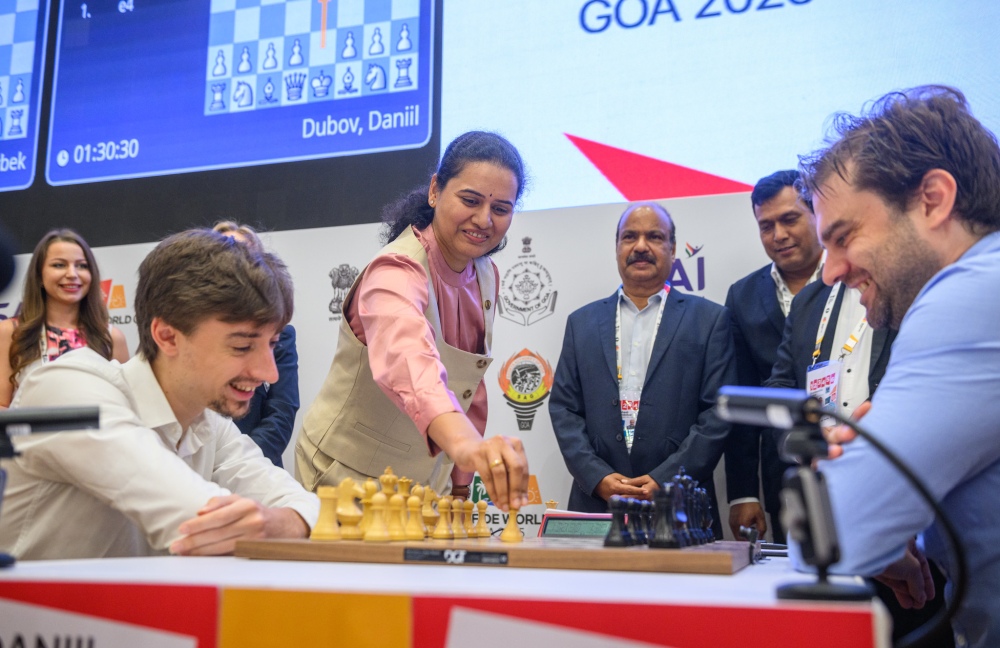
GM Daniil Dubov’s (2684) classical-game strategy in this event has been remarkably consistent: minimise risk, avoid unnecessary complications, and steer the match toward rapid tiebreaks, where he excels as a former World Rapid Champion.
It was therefore no surprise that he opted to reproduce a line from a previous game between GM Sam Shankland (2654) and GM Dmitry Andreikin in the Grünfeld Defence: a highly theoretical path that, with accurate play, leads almost inevitably to a draw.
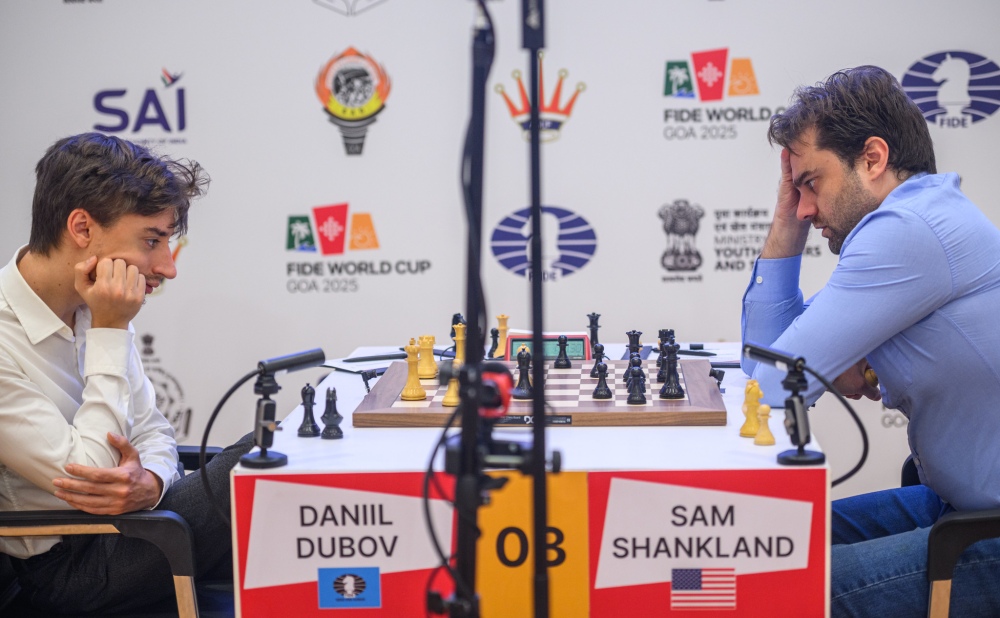
In this variation, Dubov sacrifices a pawn, but with precise moves there is virtually no danger of losing (or winning). A 99% accuracy rate tells the story well enough.
I caught up with Shankland as he was leaving the venue. After congratulating him on his performance so far, he referenced that very game against Andreikin: “It’s a dead draw. I think he wants to play the tiebreak.”
The second game to finish, also showing an impressive 98% accuracy, was the encounter between GMs Aleksey Grebnev (2611) and Andrey Esipenko (2693).
In a fully symmetrical Queen’s Gambit Accepted, neither player was willing to take even the slightest risk, both likely believing they hold the upper hand in the tiebreaks. With two open files on the board, they exchanged rooks on one of them and then repeated moves, reaching the thirty-move mark with most of the pieces still in play.
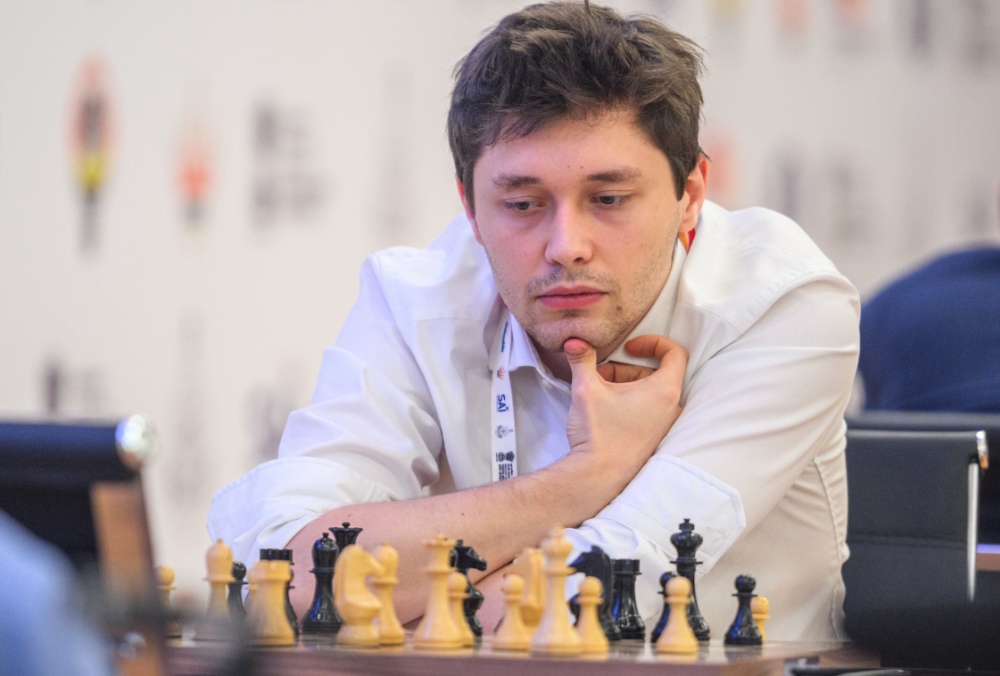
This match has been the most evenly balanced of all eight pairings, and predicting a favourite in the rapid segment feels nearly impossible. It would not be surprising if this one ends up going all the way to blitz before a winner emerges.
Over an hour passed before the next result came in. With White, GM Pentala Harikrishna (2697) attempted to press GM José Eduardo Martínez Alcántara (2644) in an offbeat line of the King’s Indian Attack.
The former Indian Olympiad team member managed to create a mild pull in the early middlegame, but Martínez Alcántara’s defensive technique was flawless this afternoon. After a series of mass simplifications, the players agreed to a draw on move thirty-five in a level endgame.
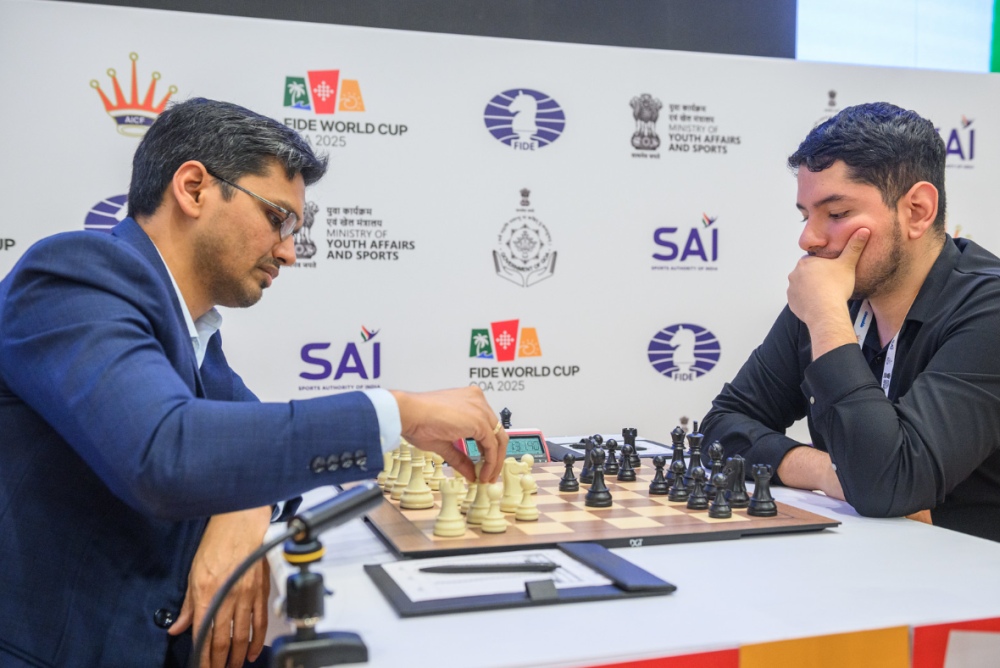
This tiebreak is also extremely hard to call. Martínez Alcántara is a blitz specialist — his online results rival those of Carlsen and Nakamura — and he currently holds a slightly higher FIDE rapid rating. But Harikrishna’s vast experience and steadiness under pressure mean he will be anything but an easy opponent.
Within the space of just ten minutes, the first two decisive results of the day arrived back-to-back and, with them, the elimination of the two Armenian legends still remaining in the event: Levon Aronian (now representing the USA) and Gabriel Sargissian.
The clash between heavyweights GMs Levon Aronian (2722) and Arjun Erigaisi (2773) delivered all the excitement one could hope for. The opening and middlegame remained largely balanced, but as the players approached time trouble, the tension rose and the mistakes began to appear.
Aronian has just played 33.Qf2–f1, a move that looks perfectly normal at first glance, but a hidden tactical shot was lurking. Erigaisi, likely focused on other strategic ideas, missed the powerful 33…Bxh2!, winning a pawn. The point is revealed after 34.Kxh2 Rxe3! 35.Rxe3 Qf4+, picking up the rook with a winning position. Instead, 33…Re6? was played.
Even so, giving a player of Erigaisi’s caliber a second chance is rarely survivable. A few moves later, under increasing pressure, Aronian finally faltered.
Here, Aronian needed to play 38.Rf1 to keep the game going. Instead, his fatal 38.Re1?? allowed the crushing response 38…Nh3!, and with it, his elimination.
White’s queen is completely overloaded, unable to defend both the rook and the bishop (which is itself guarding against mate on h2). After 39.gxh3 Rxe1 followed by …Qxf3#, or the spectacular 39.Qf1 Nxg1 40.Rxe6 Qh2#, there is no escape.
“It was a tough match; at some point, I started regretting some of my moves, and I wasn’t sure about my position. When he offered me a draw, my confidence increased,” Erigaisi explained afterward in his interview with Charlize van Zyl.
The second Armenian player to be eliminated today was GM Gabriel Sargissian (2624), who, in truth, committed only a single serious mistake, but it was enough to cost him both the game and the match against Uzbekistan’s GM Nodirbek Yakubboev (2689).
With the Black pieces, Sargissian had been under pressure from the very beginning. Confronted with the powerful two-bishop setup and an intensifying kingside attack, he spent six of his remaining ten minutes before faltering with 29…Nc6?. Yakubboev pounced immediately: 30.Qxg7 Qxa4 31.Qf8+ Kd7, and now the cold-blooded 32.Ba3!
This quiet but deadly move shuts down all queenside counterplay, prepares a queen exchange, and leads to a winning endgame thanks to the dominant bishop pair.
Instead, the only move to stay afloat was 29…Qxa4. Crucially, after that, 30.Qxg7 would no longer work due to the interposing 30…Qc6+, winning for Black.
A tough exit for Sargissian, but one that caps a remarkable and deeply commendable run in this event.
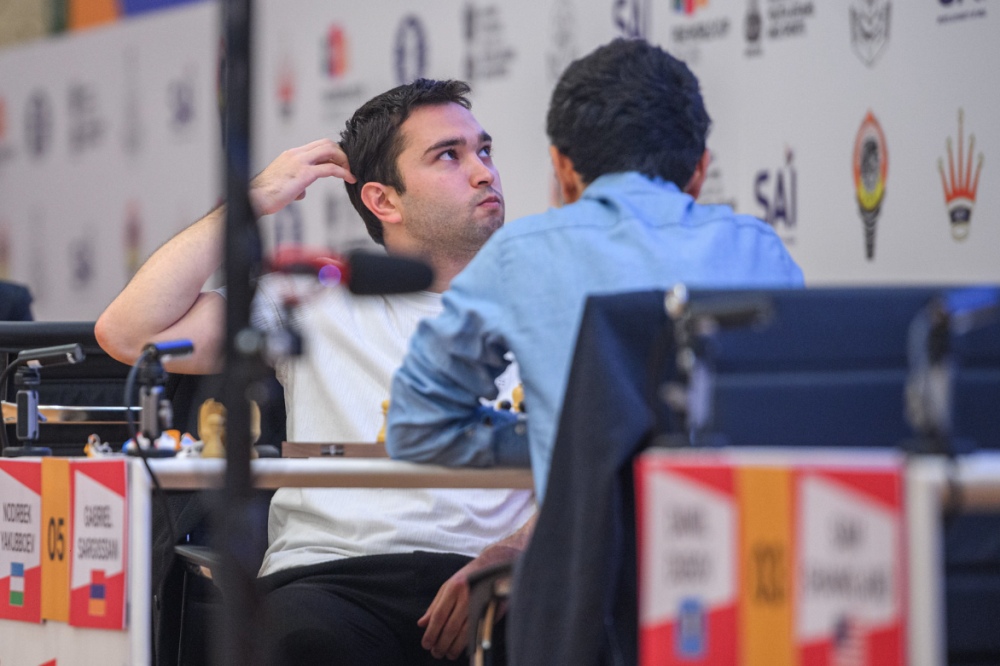
The three remaining games all reached move forty and headed into extra time. The first of them to conclude, and the one that confirmed another Uzbek qualification, was GM Frederik Svane (2638) drawing his game against GM Javokhir Sindarov (2721).
Needing only a draw to advance, Sindarov chose the Open Spanish, one of Black’s most reliable and principled systems. Svane pushed hard, eventually even winning a pawn in the endgame, but Sindarov’s deep understanding of the resulting structures allowed him to neutralise every attempt and steer the game safely toward equality.
After being the last player to leave the venue yesterday, Sindarov understandably declined an interview, but Charlize is not someone who gives up easily. Check it out!
One of my personal favourites, GM Wei Yi (2754), continues his march toward the quarterfinals, and with each passing round, he grows into one of the quiet favourites to secure a coveted spot in the 2026 Candidates Tournament.
Facing GM Samuel Sevian (2698) – who, it must be said, has enjoyed a superb event – Wei Yi calmly converted an extra pawn he won in the opening, securing a smooth victory and earning himself a rest day while many of his potential rivals head to the tiebreaks.
At this level, a missed tactic in the opening is rarely forgiven. Sevian had several equalising moves at his disposal — 10…Be6, 10…Re8, even 10…Qf6 — but instead chose the ambitious 10…Bf5?, and was immediately punished by 11.Nxc6!
A bolt from the blue that stunned the playing hall and left spectators murmuring in disbelief. White wins a clean pawn, as after 11…bxc6 12.Bxd6 the bishop on f5 falls.
“I am excited. I was lucky today. I went for a boring game because a draw was good enough to reach the tiebreaks, but suddenly my opponent dropped a pawn. Maybe he could have held with very accurate play, but the pressure was high,” Wei Yi explained after the game.
Wei Yi took his time, showed exemplary technique, and calmly converted, a result that will have Chinese chess fans around the world dreaming of seeing him compete in Cyprus in April 2026.
And for anyone who still isn’t familiar with what Wei Yi is capable of, I strongly recommend revisiting his legendary 2015 masterpiece against Cuban GM Lázaro Bruzón.
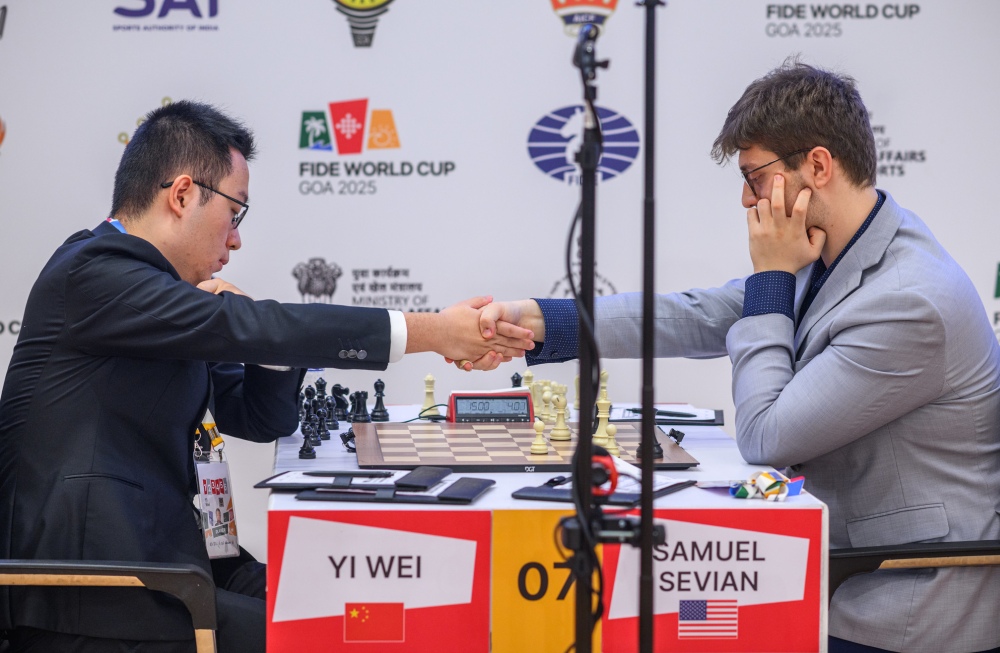
The final game of the round stretched well into the fifth hour of play. In an extraordinary save, GM Le Quang Liem (2729) escaped a completely lost rook ending against GM Alexander Donchenko (2641), forcing a tiebreak in which many would now consider him the favourite.
Not only is Le a former World Blitz Champion, but he will also carry a powerful psychological edge into tomorrow’s rapid games after surviving what looked, for most of the afternoon, like a certain defeat.
Donchenko had so many winning chances that it’s difficult to single out just one — but the last opportunity was perhaps the clearest.
After 69…Kg2 70.Rg6+, the simple 70…Rg3! would have sealed the win. White has no way of stopping the advancing h-pawn, and the technical task is straightforward. Donchenko almost certainly saw this idea, but perhaps believed that 69…Ke2?? would also lead to victory.
Sadly for him, 70.Ra6! is one of the very few drawing moves in the position. The rook is perfectly placed to give perpetual checks along the first and second ranks while the king marches toward the h-pawn, and Donchenko’s advantage evaporated on the spot.
The German grandmaster left the hall visibly crestfallen, fully aware of the win that had slipped away. Will he recover emotionally in time for tomorrow’s tiebreak? Stay tuned to find out.
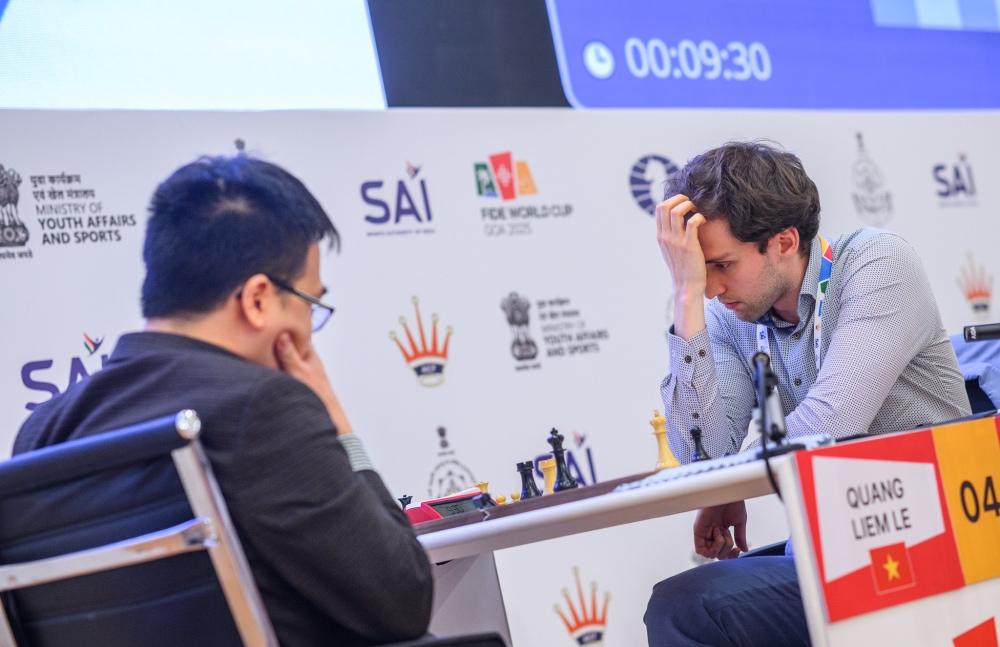
And so we move to the tiebreaks, where reputations mean little, clocks tick louder, and every move could be your last. Tomorrow, the real battle begins.
Round 5 tiebreaks:
- Pentala Harikrishna (2697) – José Eduardo Martínez Alcántara (2644)
- Andrey Esipenko (2693) – Aleksey Grebnev (2611)
- Le Quang Liem (2729) – Alexander Donchenko (2641)
- Daniil Dubov (2684) – Sam Shankland (2654)
The Round 5 tiebreaks will be played on November 16 at 3 PM local time.
The action can be followed live on the FIDE YouTube Channel, featuring expert commentary by GMs Peter Leko and Jan Gustafsson.
To watch the games in person, tickets can be purchased [HERE]
Official website: worldcup2025.fide.com/
Written by IM Michael Rahal (Goa, India)
Photos: Michal Walusza



